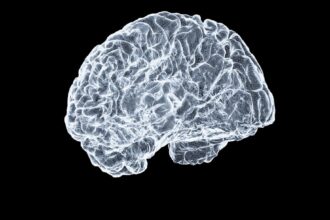Metacognition is a term that refers to the awareness and understanding of one’s own thought processes. It encompasses two primary components: knowledge about cognition and regulation of cognition. When you engage in metacognitive thinking, you are essentially stepping back to observe how you think, learn, and solve problems.
This self-reflective process allows you to evaluate your cognitive strategies and adjust them as necessary. By recognizing your strengths and weaknesses in thinking, you can enhance your learning experiences and outcomes. As you delve deeper into metacognition, you may find it helpful to consider the various types of knowledge involved.
Declarative knowledge pertains to what you know about your cognitive abilities, while procedural knowledge relates to how you apply that knowledge in practice. Conditional knowledge, on the other hand, involves understanding when and why to use specific strategies. By developing a comprehensive understanding of these components, you can better navigate your learning journey and become a more effective thinker.
Key Takeaways
- Metacognition is the awareness and understanding of one’s own thought processes and cognitive abilities.
- Metacognition training is important for improving learning and problem-solving skills.
- Developing metacognitive strategies involves setting goals, monitoring progress, and evaluating outcomes.
- Metacognition enhances self-regulation by helping individuals manage their emotions and behaviors.
- Applying metacognition in daily life can improve decision-making, critical thinking, and emotional intelligence.
The Importance of Metacognition Training
Training in metacognition is crucial for anyone looking to improve their cognitive abilities. When you engage in metacognitive training, you learn to monitor your own thought processes, which can lead to enhanced learning outcomes. This training encourages you to ask yourself questions about your understanding and approach to tasks, fostering a habit of self-reflection.
As a result, you become more adept at identifying gaps in your knowledge and adjusting your strategies accordingly. Moreover, metacognition training can significantly impact your academic performance. Research has shown that students who practice metacognitive strategies tend to achieve higher grades and demonstrate improved problem-solving skills.
By incorporating metacognitive training into your study routines, you can cultivate a mindset that prioritizes self-awareness and adaptability. This not only benefits your academic pursuits but also equips you with valuable skills for lifelong learning.
Developing Metacognitive Strategies

To harness the power of metacognition, it is essential to develop effective strategies that promote self-awareness and self-regulation. One approach is to create a metacognitive journal where you can document your thoughts about your learning processes. In this journal, you can reflect on what strategies worked well for you, what challenges you faced, and how you can improve in the future.
This practice encourages you to think critically about your learning experiences and fosters a growth mindset. Another effective strategy is to set specific goals for your learning. By establishing clear objectives, you can better monitor your progress and evaluate the effectiveness of your strategies.
For instance, if you are studying for an exam, you might set a goal to master a particular topic by a certain date. As you work towards this goal, regularly assess your understanding and adjust your study methods as needed. This iterative process not only enhances your metacognitive skills but also reinforces your commitment to achieving your objectives.
Enhancing Self-Regulation through Metacognition
| Metrics | 2019 | 2020 | 2021 |
|---|---|---|---|
| Number of participants | 150 | 200 | 250 |
| Self-regulation score (out of 10) | 6.5 | 7.2 | 8.0 |
| Metacognition improvement (%) | 15% | 20% | 25% |
Self-regulation is a vital skill that allows you to manage your thoughts, emotions, and behaviors effectively. Metacognition plays a significant role in enhancing self-regulation by providing you with the tools to monitor and adjust your cognitive processes. When you practice metacognitive strategies, you become more aware of how external factors influence your learning and decision-making.
This awareness enables you to take control of your actions and make informed choices. For example, when faced with distractions while studying, metacognitive awareness can help you recognize the impact of those distractions on your focus and productivity. By identifying these challenges, you can implement strategies to minimize their effects, such as creating a designated study space or setting specific time blocks for focused work.
As you develop greater self-regulation through metacognition, you’ll find that you’re better equipped to handle obstacles and maintain motivation in pursuit of your goals.
Improving Problem-Solving Skills with Metacognition
Metacognition is particularly beneficial for enhancing problem-solving skills. When confronted with a complex problem, engaging in metacognitive thinking allows you to analyze the situation from multiple angles. You can assess the strategies you’ve used in the past and determine their effectiveness in addressing similar challenges.
This reflective process not only helps you identify potential solutions but also fosters creativity in approaching problems. Additionally, by practicing metacognitive strategies during problem-solving tasks, you can develop a systematic approach to tackling challenges. For instance, breaking down a problem into smaller components can make it more manageable and less overwhelming.
As you work through each component, regularly check in with yourself to evaluate your progress and adjust your strategies as needed. This iterative process not only enhances your problem-solving abilities but also builds confidence in your capacity to navigate complex situations.
Applying Metacognition in Learning and Studying

Incorporating metacognition into your learning and studying practices can lead to significant improvements in retention and comprehension. One effective method is to employ active learning techniques that encourage self-questioning and reflection. For example, after reading a chapter in a textbook, take a moment to summarize the key points in your own words.
This practice not only reinforces your understanding but also prompts you to consider how the information connects to what you already know. Another way to apply metacognition in studying is through the use of self-assessment tools. Quizzes or practice tests can serve as valuable resources for gauging your understanding of the material.
After completing these assessments, take time to reflect on the questions you struggled with and analyze why those difficulties arose.
Metacognition in Decision-Making and Critical Thinking
Metacognition plays a crucial role in decision-making and critical thinking processes. When faced with choices or dilemmas, engaging in metacognitive reflection allows you to evaluate the reasoning behind your decisions. You can assess the information available to you, consider alternative perspectives, and weigh the potential consequences of each option.
This reflective approach fosters more informed decision-making and enhances your ability to think critically. Moreover, by practicing metacognitive strategies during decision-making processes, you can develop a habit of questioning assumptions and biases that may cloud your judgment. For instance, before making a significant decision, take time to reflect on the factors influencing your choice and consider whether they are based on sound reasoning or emotional responses.
This level of self-awareness can lead to more rational decisions and ultimately contribute to better outcomes in both personal and professional contexts.
Overcoming Cognitive Biases through Metacognition
Cognitive biases are systematic patterns of deviation from norm or rationality in judgment that can hinder effective decision-making and problem-solving. Metacognition offers valuable tools for recognizing and overcoming these biases. By cultivating self-awareness about your thought processes, you can identify instances where biases may be influencing your judgments or decisions.
For example, if you notice that you’re favoring information that confirms your existing beliefs (confirmation bias), metacognitive reflection can prompt you to seek out alternative viewpoints or evidence that challenges those beliefs. This practice not only broadens your perspective but also enhances critical thinking skills by encouraging a more balanced evaluation of information. As you become more adept at recognizing cognitive biases through metacognition, you’ll find yourself making more objective decisions based on a comprehensive understanding of the situation.
Metacognition and Emotional Intelligence
Emotional intelligence (EI) refers to the ability to recognize, understand, and manage emotions—both in yourself and others. Metacognition is closely linked to emotional intelligence as it fosters self-awareness and self-regulation of emotions during various situations. When you engage in metacognitive practices, you’re better equipped to identify how emotions influence your thoughts and behaviors.
For instance, if you’re feeling anxious before a presentation, metacognitive reflection can help you recognize that anxiety may be affecting your performance. By acknowledging this emotion, you can implement strategies such as deep breathing or positive visualization techniques to manage it effectively. This heightened emotional awareness not only improves your performance but also enhances interpersonal relationships by allowing you to empathize with others’ emotional states.
Metacognition and Goal Setting
Goal setting is an essential aspect of personal development and achievement. Metacognition plays a pivotal role in this process by enabling you to evaluate the effectiveness of your goals and the strategies employed to achieve them. When setting goals, it’s important to consider not only what you want to achieve but also how you’ll monitor progress along the way.
By applying metacognitive strategies during goal setting, you can create SMART (Specific, Measurable, Achievable, Relevant, Time-bound) goals that align with your values and aspirations. Regularly reflecting on these goals allows you to assess whether they remain relevant or if adjustments are necessary based on changing circumstances or new insights gained through experience. This dynamic approach ensures that you’re continually working towards meaningful objectives while remaining adaptable in the face of challenges.
Implementing Metacognition in Daily Life
Incorporating metacognition into your daily life can lead to profound changes in how you approach challenges and opportunities alike. Start by setting aside time for regular self-reflection—whether through journaling or simply taking quiet moments for contemplation. This practice will help cultivate an ongoing awareness of your thought processes and decision-making patterns.
Additionally, consider integrating metacognitive strategies into everyday tasks such as planning meals or managing time effectively. For instance, before embarking on a new project or task, take a moment to outline the steps you’ll need to take while considering potential obstacles that may arise along the way. By applying metacognitive principles consistently throughout various aspects of life, you’ll develop a more thoughtful approach that enhances both personal growth and overall well-being.
In conclusion, embracing metacognition offers numerous benefits across various domains of life—from academic success to emotional intelligence and effective decision-making. By developing an awareness of your thought processes and actively engaging in self-reflection, you’ll cultivate skills that empower you to navigate challenges with confidence while fostering continuous growth throughout your journey.
Metacognition training is an essential component in enhancing self-awareness and improving learning strategies. It involves teaching individuals to think about their own thinking processes, which can lead to better problem-solving skills and academic performance.
For more insights, you can read the article on their website by following this link. This resource provides valuable information on how metacognitive strategies can be effectively implemented in educational settings.
FAQs
What is metacognition training?
Metacognition training is a type of cognitive training that focuses on improving individuals’ awareness and control of their own thinking processes. It involves teaching individuals to monitor, regulate, and evaluate their own cognitive processes in order to improve learning and problem-solving abilities.
What are the benefits of metacognition training?
Metacognition training has been shown to improve academic performance, problem-solving skills, and decision-making abilities. It can also help individuals become more independent and self-regulated learners.
How is metacognition training conducted?
Metacognition training can be conducted through various techniques such as self-reflection, goal setting, strategy planning, and self-assessment. It can be implemented in educational settings through specific instructional strategies and interventions.
Who can benefit from metacognition training?
Metacognition training can benefit individuals of all ages, from children to adults. It is particularly beneficial for students, as it can help them become more effective learners and problem solvers.
What are some examples of metacognitive strategies?
Examples of metacognitive strategies include setting goals, monitoring one’s own understanding, using different learning strategies, and evaluating one’s own performance. These strategies can be applied to various learning tasks and activities.




